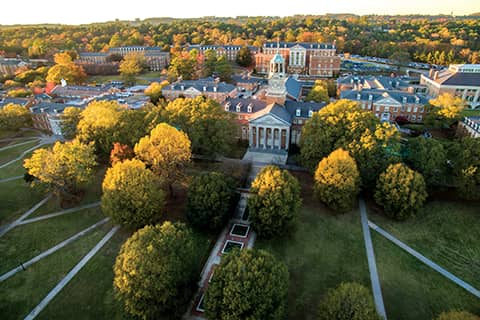
On Oct. 18, Samford University will host a discussion on the Proposed Alabama Constitution of 2022, which will be voted on by Alabamians on Nov. 8 during the general election. The event is open to the public and will give attendees an opportunity to hear from panelists and learn more about the proposed changes, the rational for them and the importance of updating the state’s constitution.
The panelists include moderator Catherine Randall, Ph.D., chairman of Pettus Randall Holdings, Inc.; State Representative Danny Garrett, who represents District 4: Trussville, Clay and Pinson; State Representative Merika Coleman, who represents District 57: Pleasant Grove; and Othni Lathram, director of the Alabama Legislative Services Agency. Along with Samford, the event is also sponsored by Leadership Alabama and the Public Affairs Research Council of Alabama.
The Constitution of 1901, which is the state’s existing constitution, has 977 amendments to the original 18 articles that are intended to spell out the basics of state government, such as the authorities of the legislative, executive and judicial branches. According to lawmakers, it has grown to be almost indecipherable after more than a century of adding amendments without removing original sections that were changed and repealed.
The proposed changes in the Proposed Alabama Constitution of 2022 will arrange the document into a cohesive format and revise or delete three sections from the era of racial segregation, which lawmakers say includes racist language. The three sections that will be revised or deleted include:
- Section 32 which is the prohibition against slavery in the 1901 Constitution. The Proposed Alabama Constitution of 2022 deletes the last portion that reads, “That no form of slavery shall exist in this state; and there shall not be any involuntary servitude.”
- Section 256 required “separate schools for white and colored children.” The Proposed Alabama Constitution of 2022 deletes, “The legislature may authorize the parents or guardians of minors, who desire that such minors shall attend schools provided for their own race, to make election to that end.” In addition, it deletes the original section that mandated segregated schools and a provision from the 1956 amendment stating the legislature could “require or impose conditions or procedures deemed necessary to the preservation of peace and order.”
- Section 259 is part of Article XIV on education and is the surviving reference to the poll tax. The Proposed Alabama Constitution of 2022 deletes, “All poll taxes collected in this state shall be applied to the support and furtherance of education in the respective counties where collected.”
The proposed version went to the legislature during this year’s regular session. Legislators approved it without a dissenting vote, a step that was required to put it on the ballot in November.
The event is free and open to the public. It will take place from 5:30-6:30 p.m. on Oct. 18 and will be held in Brock Recital Hall on Samford’s campus, which is located at 800 Lakeshore Drive. The discussion will also be livestreamed at samford.edu/live.
